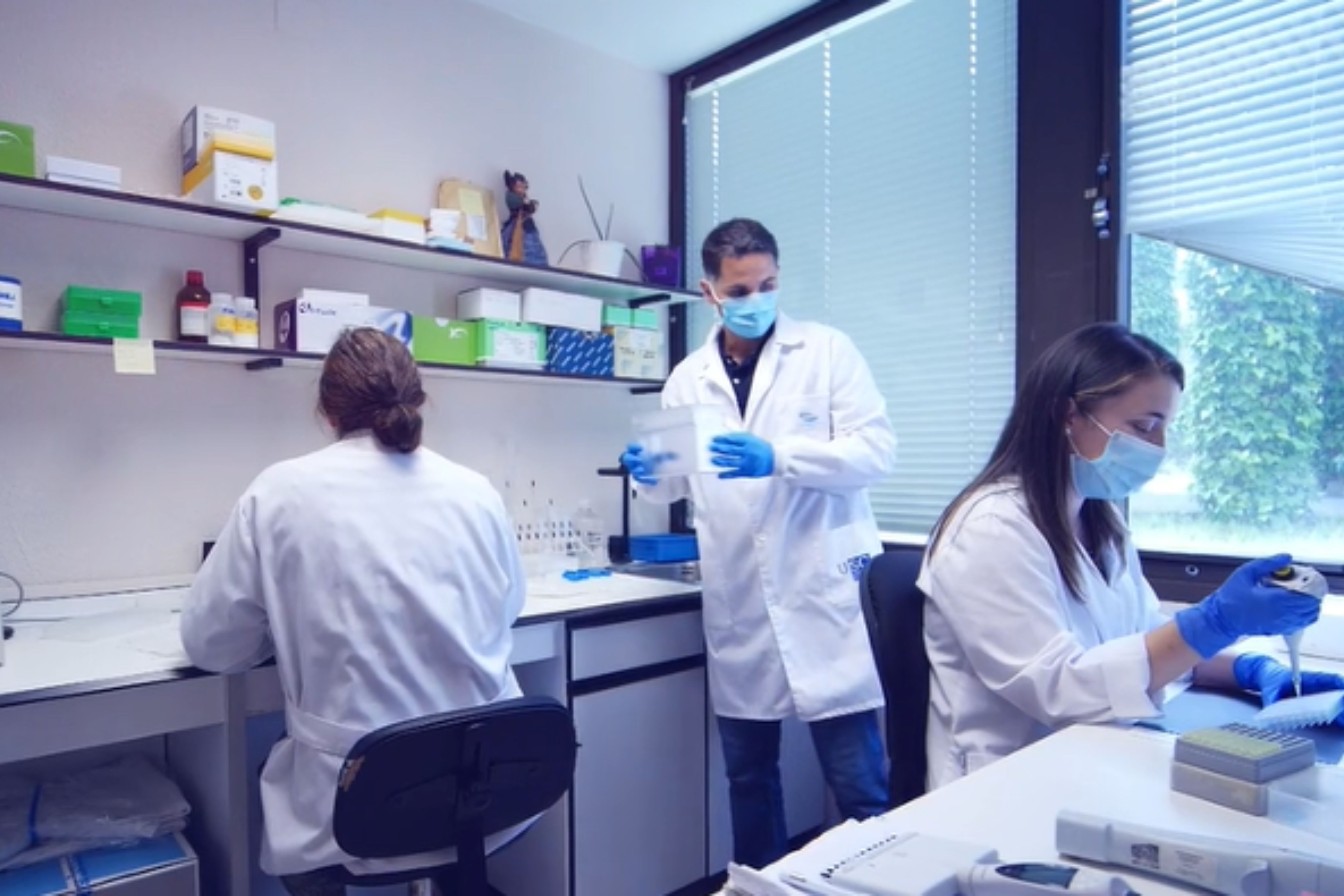
Latest information

Genetics for aquaculture
Aquaculture and genetics go hand in hand at Geneaqua (Genetic Technology for Aquaculture), a technology-based company from Lugo that emerged as a spin off from the University of Santiago de Compostela (USC). Its origins lie in the Acuigen (Genetics for Aquaculture and Conservation of Biological Resources) research group at the Faculty of Veterinary Medicine.
It was in this group, directed by the USC genetics professor Paulino Martínez Portela, where Adrián Millán, Geneaqua's manager, did his doctoral thesis after graduating in Veterinary Science, and through which he came into contact with the study of aquaculture and fish genetics. After years of work, in February 2012 they decided to make a new commitment to technology transfer and put the research and knowledge accumulated in this field at the service of the aquaculture production sector.
As a result, Geneaqua was born, with the mission of carrying out direct and more commercial management with the companies, seeking to meet their specific needs in a personalised way. "We are advisors in taking genetic decisions to improve the aquaculture sector. Our differential value lies in understanding each client's specific problems, offering solutions that adapt to their production process and their possibilities, both technically and economically", explains Adrián Millán.
Genetics, when applied to aquaculture, allows among many other possibilities, optimising aquatic crop production, selecting individuals with the best characteristics in terms of rate of growth or improving resistance to different pathogens and diseases.
Customised services
Turbot, sole, sea bream, sea bass, salmon or rainbow trout are some of the main species farmed in Europe in the field of aquaculture. Geneaqua's market is global, as they can work with companies from all over the world. All they need to do is send them small biological samples of the individuals for analysis, from which they can extract the DNA and analyse the specific molecular markers. In addition to companies in Galicia and the rest of Spain, over the course of their career they have also provided their services abroad, to countries such as Portugal, Greece, Ecuador, Nicaragua, Tunisia and Saudi Arabia.
Depending on each company's circumstances and needs, they offer different services, including the genetic analysis of breeding stock to evaluate their diversity, genetic and family structure; the distribution of individuals in tanks by minimum kinship and consanguinity or the development of genetic improvement plans aimed, for example, at greater resistance to diseases.
Aquaculture of the future
Fishboost has been one of the European projects that has most influenced the company's development. Its aim, developed between 2014 and 2019, was to improve the efficiency and profitability of European aquaculture by boosting genetic selection. Geneaqua focused on the genomic development of turbot. Whereas previously they routinely analysed 8 or 10 markers for each fish, thanks to new techniques of mass sequencing, they now have more than 25,000 molecular markers, which allows them to draw up specific plans to address more complex response traits other than growth, such as resistance to diseases or different polygenic traits.
"Through this project we came into contact with some of the best European aquaculture research groups, we learned new techniques to generate genomic resources that we have replicated in other species and that has allowed us to make a qualitative leap to implement genomics, which is materialised in the development of a commercial chip that allows us to obtain data on some 5,000 markers in just one analysis", explains Adrián Millán.
They are currently involved in AQUA-FAANG, a further step towards precision aquaculture. This is an EU-funded aquaculture research project. It aims to improve our understanding of the complex genetic basis of different biological traits in the six most important fish species in European aquaculture.